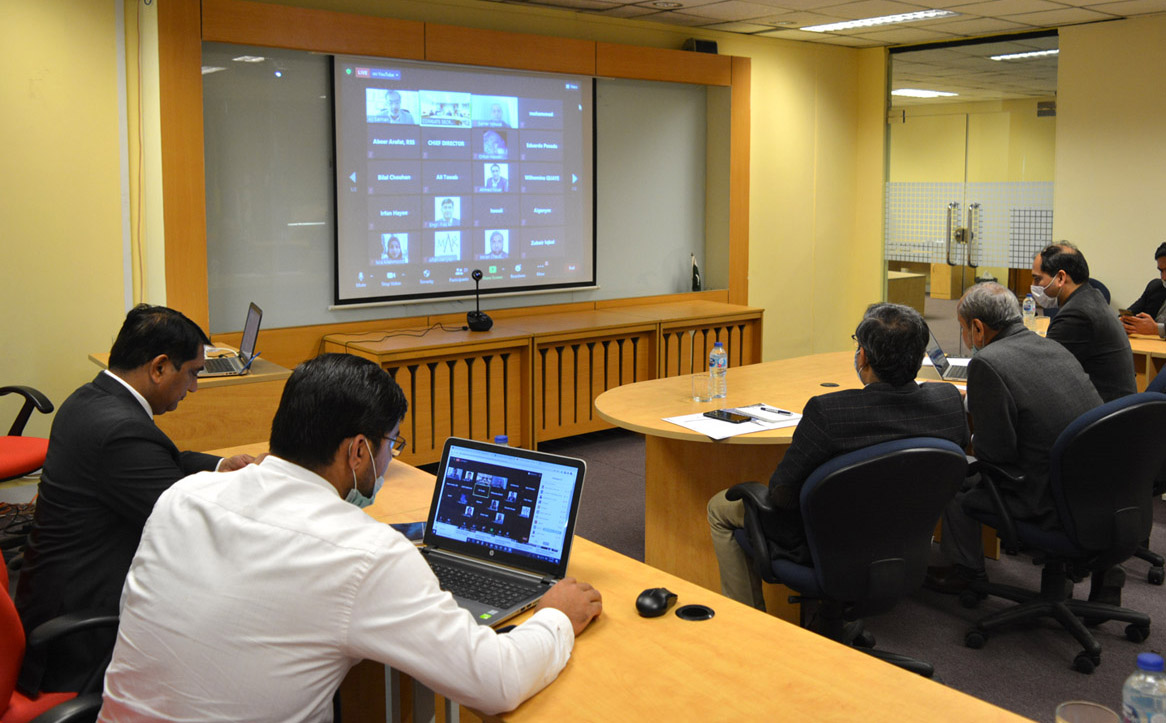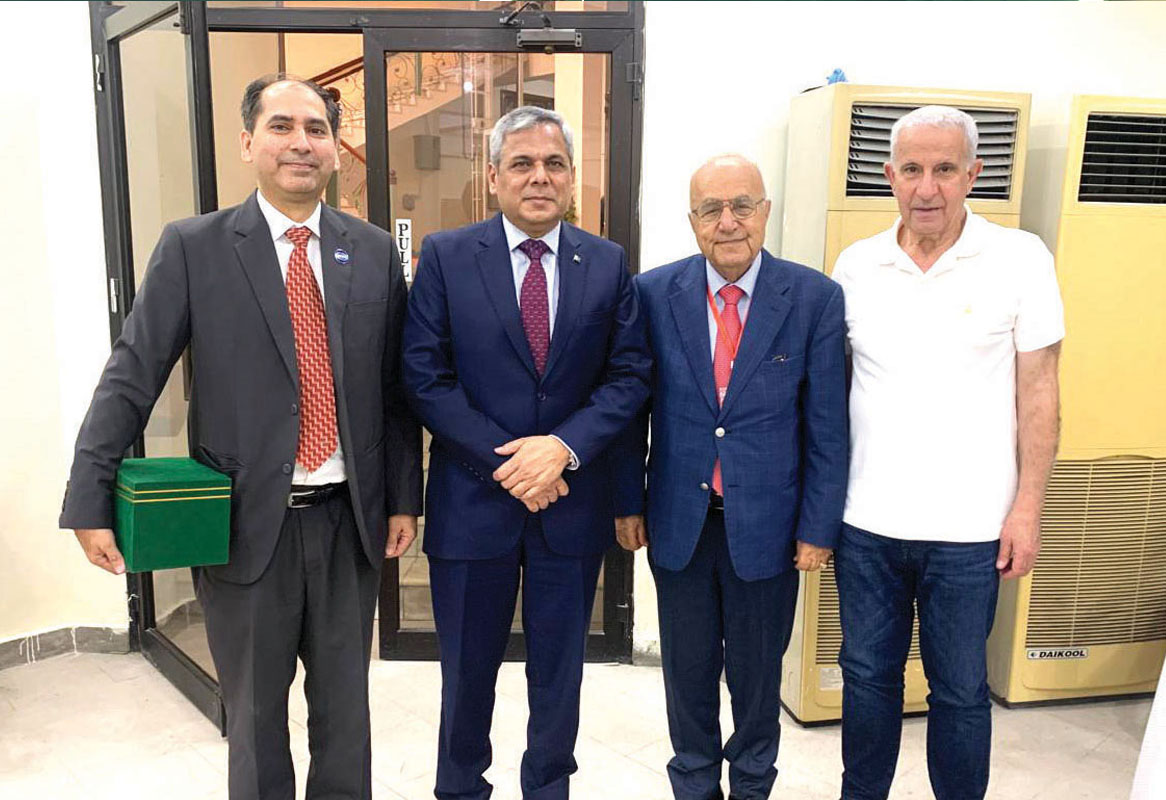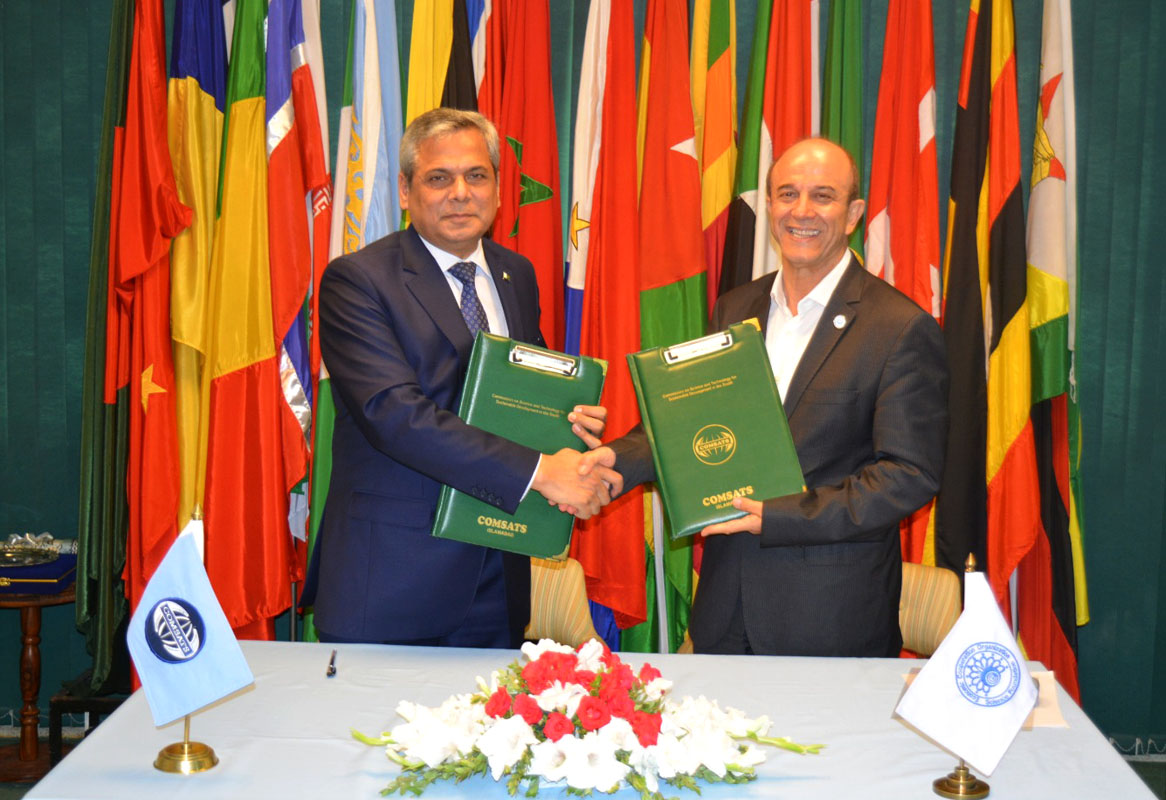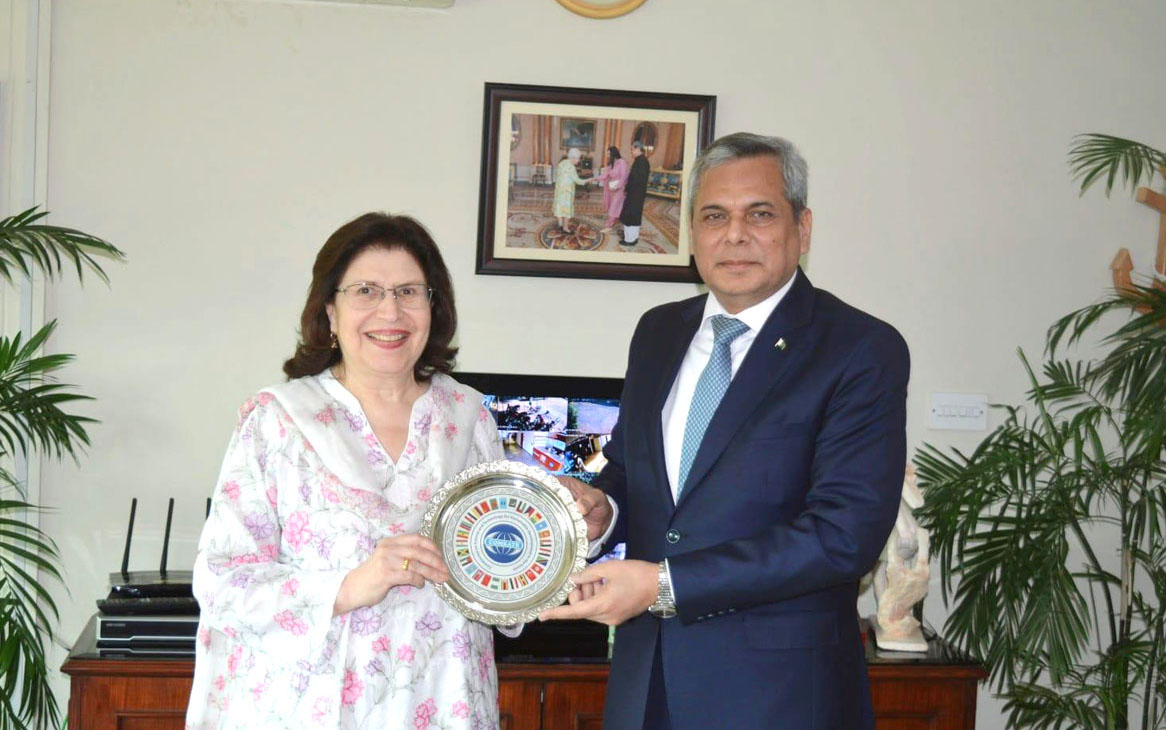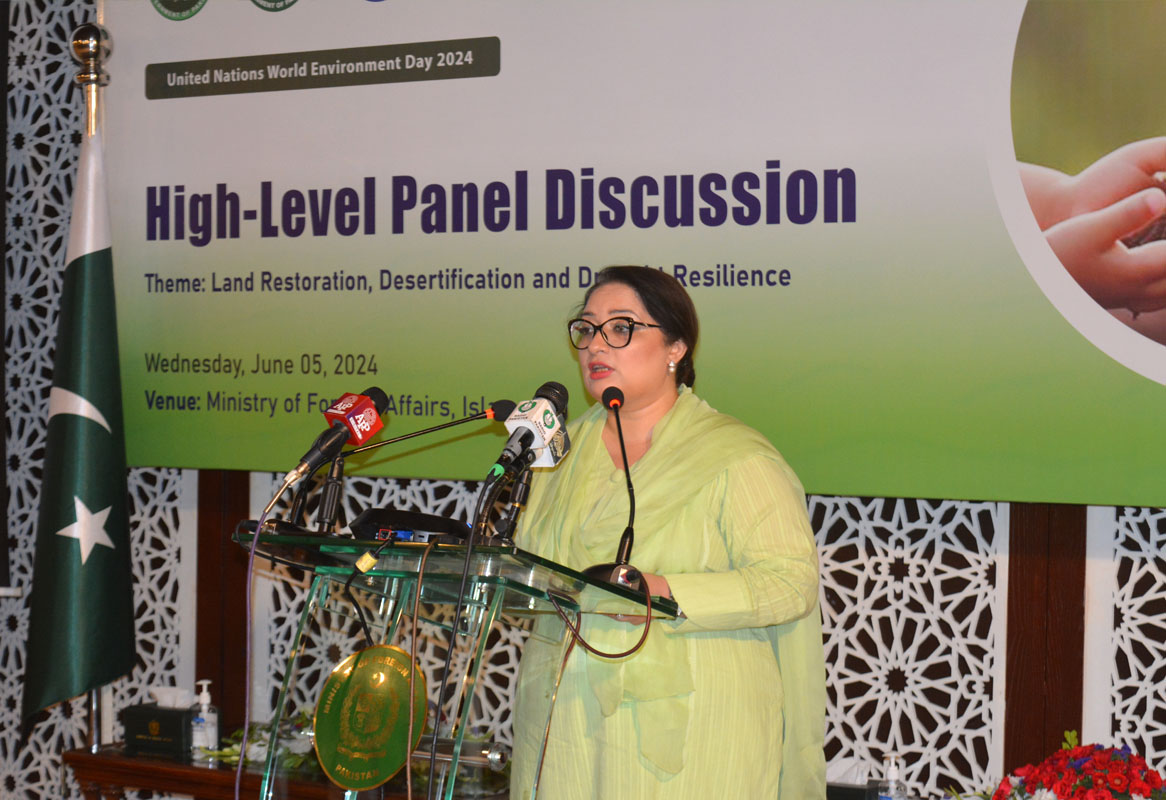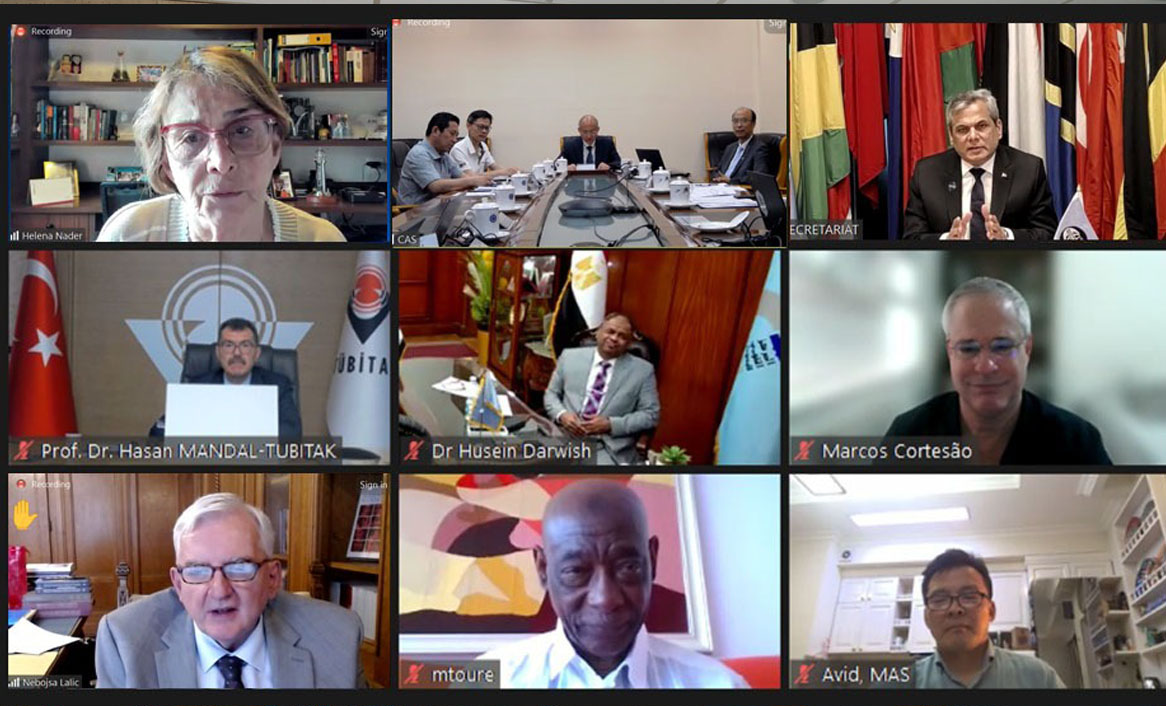COMSATS’ Lecture Series on “South – South and Triangular cooperation for Socio-economi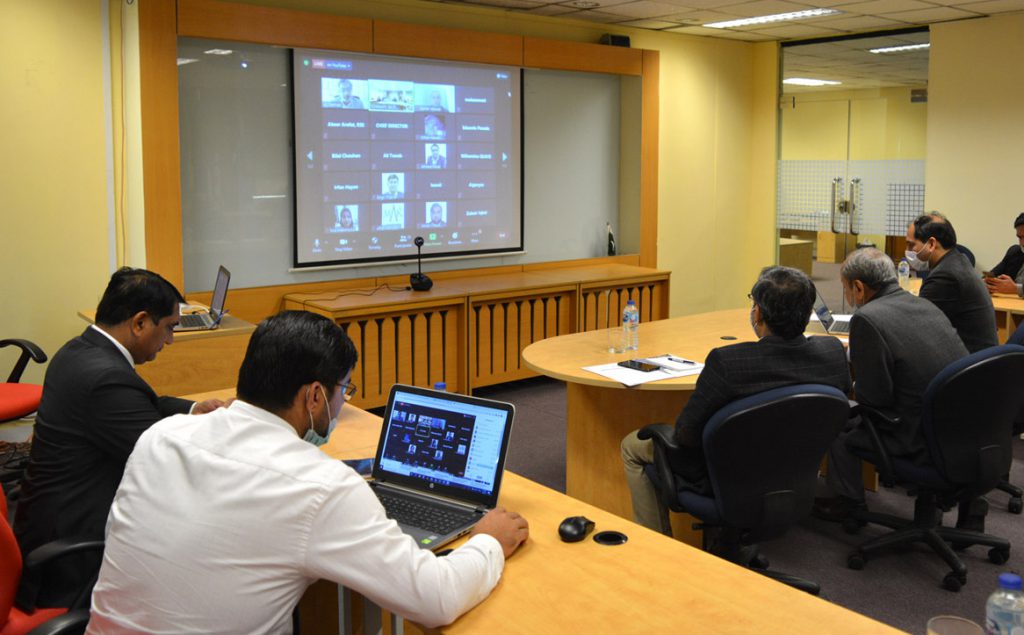 c Development in the South” continued with its sixth session featuring talks bearing themes of food security and ST&I in the backdrop of COVID-19 pandemic. Held on 9th February 2021, the session was attended by officials from COMSATS’ Focal Ministries, Centres of Excellence, as well as COMSATS Secretariat.
c Development in the South” continued with its sixth session featuring talks bearing themes of food security and ST&I in the backdrop of COVID-19 pandemic. Held on 9th February 2021, the session was attended by officials from COMSATS’ Focal Ministries, Centres of Excellence, as well as COMSATS Secretariat.
Mr. Ali Salman, Founder and Executive Director of the Policy Research Institute of Market Economy (PRIME), Pakistan, gave a talk entitled ‘Food Security during the Pandemic: Importance of South-South Regional Cooperation’. Inspired by a paper on “Food security in Pakistan during the pandemic year (Democracy Reporting International (DRI), Pakistan, December 2020), Mr. Salman’s talk highlighted various dynamics of food security, food inflation, as well as fiscal, administrative and policy measures taken by federal and provincial governments in Pakistan during the pandemic.
Discussing the implications of COVID-19 in various sectors in Pakistan, Mr. Salman cited 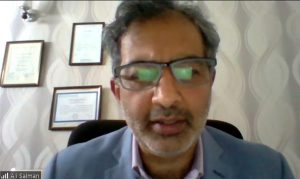 UNDP’s report and highlighted useful predictions and projections it included. He also discussed disruptions in food supply chain in Pakistan. Some recent challenges toward agriculture and food security recalled by him in Pakistan included: damage to tomato crops and relevant economic toll due to reduced imports from Iran and locust attacks resulting in serious crop losses.
UNDP’s report and highlighted useful predictions and projections it included. He also discussed disruptions in food supply chain in Pakistan. Some recent challenges toward agriculture and food security recalled by him in Pakistan included: damage to tomato crops and relevant economic toll due to reduced imports from Iran and locust attacks resulting in serious crop losses.
Mr. Salman suggested policy measures to remedy the adverse effects of these losses. He was of the opinion that the federal government should identify population pockets suffering from severe shortage of food, whereas the provincial governments should re-direct budgets available within the provincial departments for provision of food packages comprising of essential food items. Moreover, the government, Civil Society Organisations (CSOs) and the private sectors should join hands to ensure sustained supply of food packages in affected areas.
The second lecture on ‘Science, Technology and Innovation to address COVID-19 in Palestine’, was 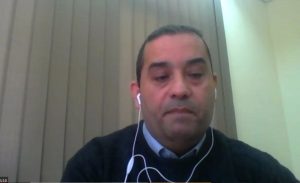 delivered by Engr. Samer Hussein, Director General for Technical Education, Ministry of Higher Education and Scientific Research (MOHESR), Palestine.
delivered by Engr. Samer Hussein, Director General for Technical Education, Ministry of Higher Education and Scientific Research (MOHESR), Palestine.
He shared some key statistics regarding the higher education sector of Palestine. Mr. Hussein opined that distance education and learning have become an indispensable tool during the pandemic and accordingly, the government of Palestine adopted measures for technical strengthening of the education sector. He shared some of these measures: development of a crisis cell for technical facilitation of teachers; capacity-building and skill development in digital technologies, web applications and platforms; and creation of informational videos for awareness and education of staff and students. Engr. Samer also shared information on NAACE Self Review Framework (SRF) that helps academic and training institutions understand, evaluate, monitor, and plan regarding technology strategy.
It was informed that Al-Quds University also produced medical artificial respirator in collaboration with specialists from medical fields, and computer sciences. The device is based on an innovative design, having 360-degree mechanical steering system, a water spray system, as well as pneumatic propulsion system. It contains two tanks having 300 liters capacity. Moreover, it was informed that an alarm device, a Smart Medal for wireless charging of smartphones, as well as a hand sanitizer package were also designed by Palestinian researchers.
During the discussion session, role of private sector, in particular, Internet service providers in providing low-cost quality internet for e-learning, as well as mathematical modeling and simulation of the various aspects of COVID-19 were highlighted. The participants called for enhanced collaboration among the developing countries to combat food security related challenges. The International Centre for Physics (CIF), Colombia, shared interest in collaborating with Palestine for manufacturing of small medical devices.

